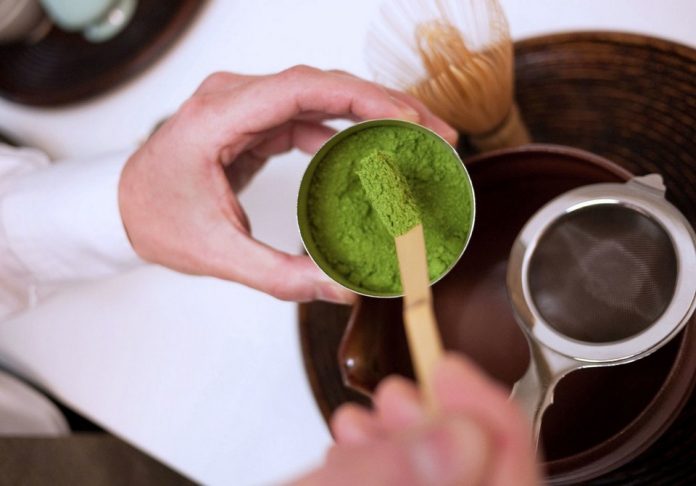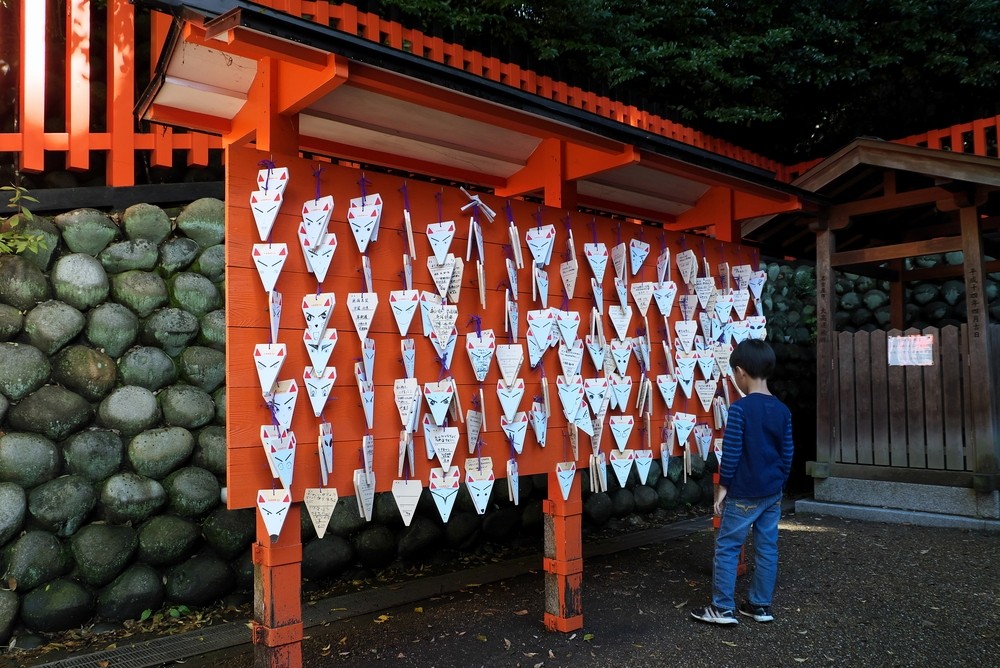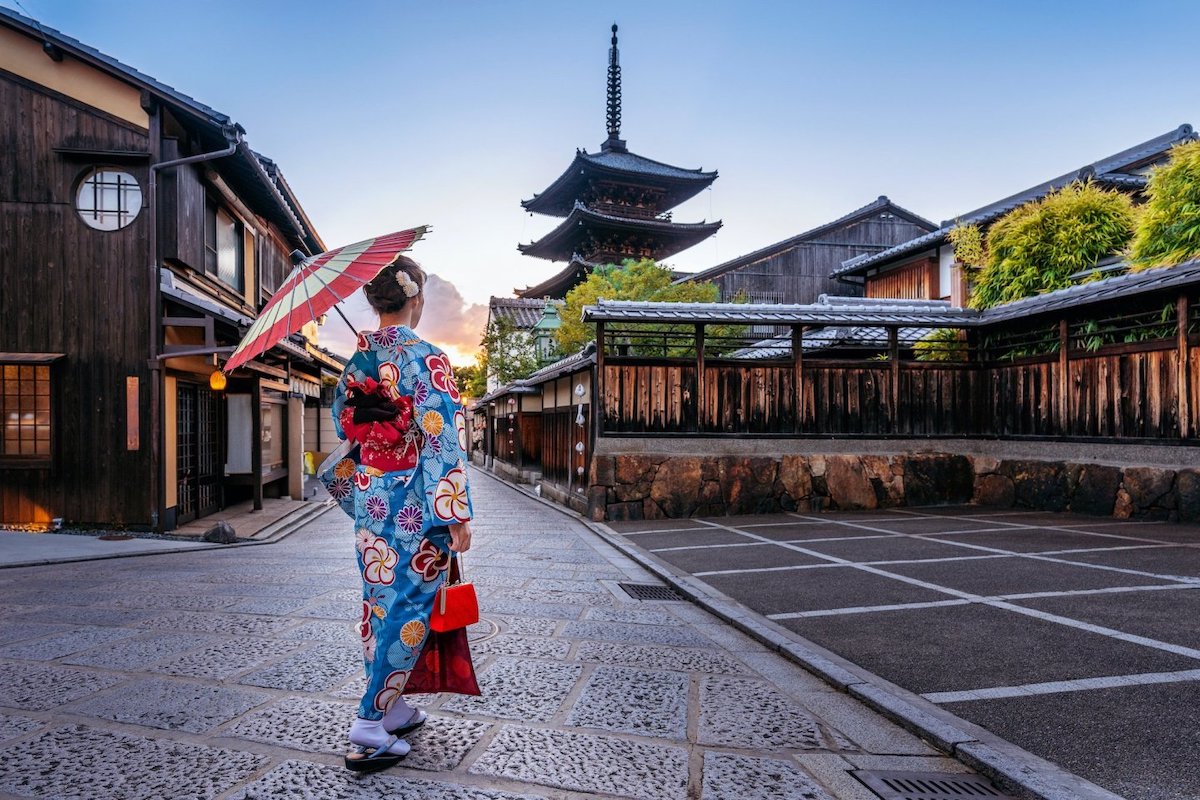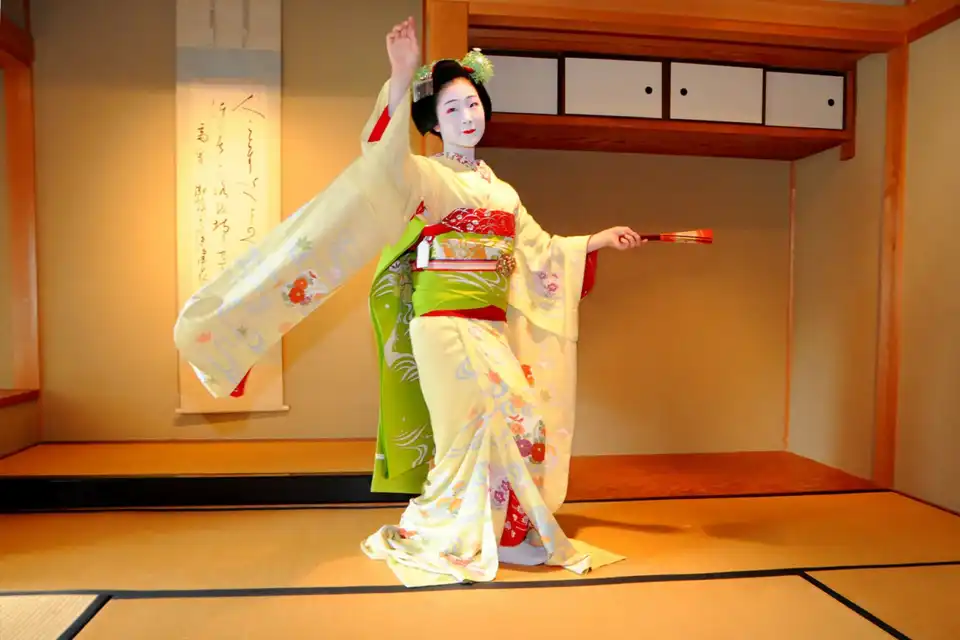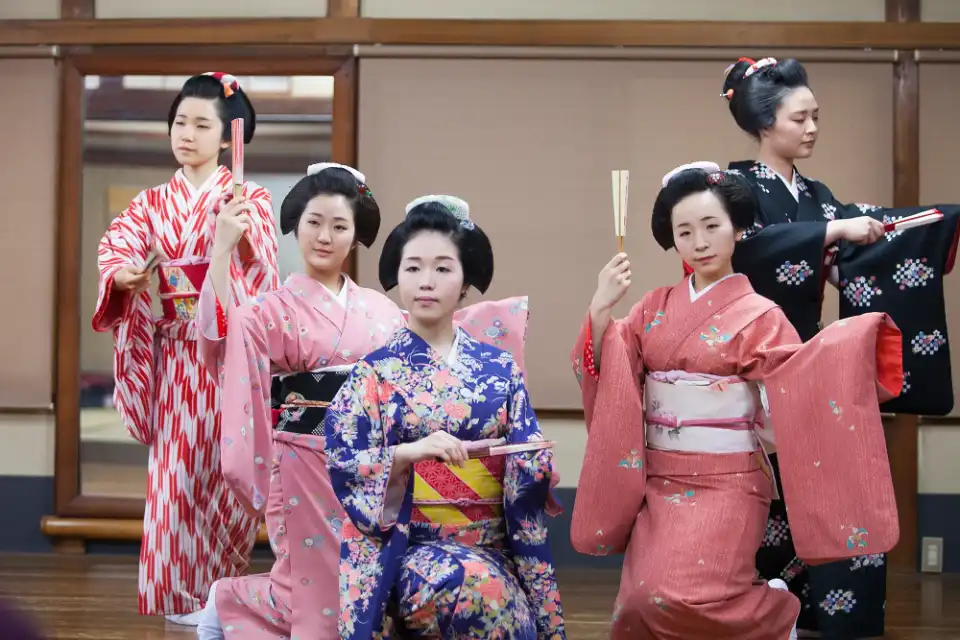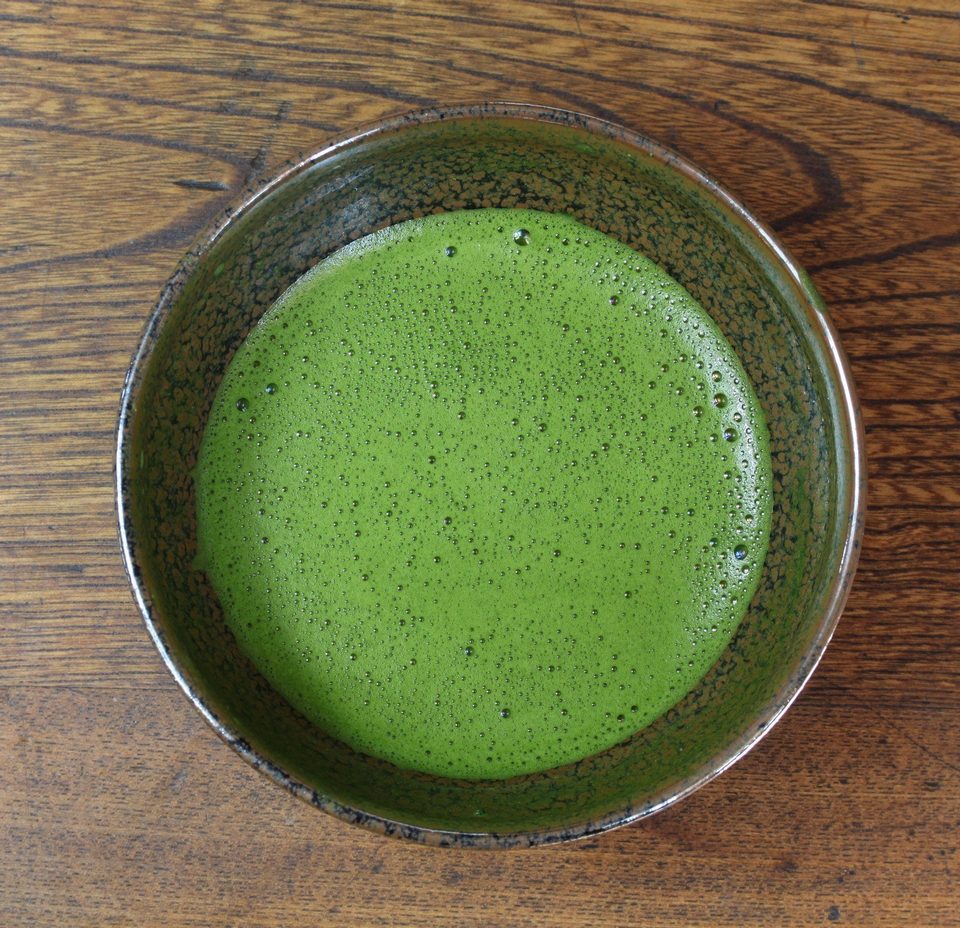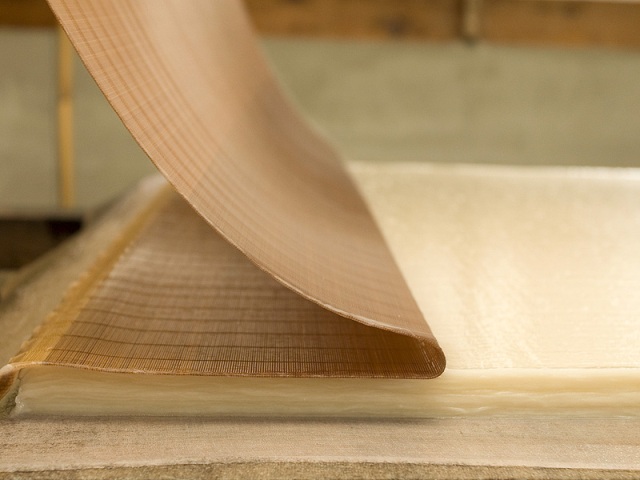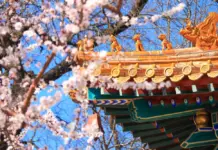Kyoto is home to keep and preserve many traditional Japanese values. It offers countless souvenirs for visitors to choose from. Souvenirs, gifts from Kyoto are bold with traditional values, which are reflected in each product made by artisans here. Their craft is not limited to decorations and household items, but also hidden in traditional sweets. There are some products, specialties you can only find in Kyoto and nowhere else. So, what is Kyoto japan famous for, what souvenirs to buy in Kyoto, what is Kyoto famous for, what to buy from Kyoto and what to buy in Kyoto? Let’s check out our Kyoto shopping guide and best shopping Kyoto with the suggested +31 best Kyoto souvenirs (best souvenirs from Kyoto, Kyoto souvenirs), Kyoto gifts, best things to buy in Kyoto, Kyoto things to buy, must buy in Kyoto as well as where to find them to help you find out meaningful souvenirs and gifts for your loved ones!
- Where to buy souvenirs in Kyoto? — Top 11+ best places to shop in Kyoto & what to buy in Kyoto
- Kyoto cherry blossom 2026 forecast — The dates & 9+ best place to see cherry blossoms in Kyoto
- Kyoto fall foliage forecast 2025 — The time & 15+ best place to see autumn leaves in Kyoto
- What to buy in Osaka? — Top 21+ gifts, souvenirs & best things to buy in Osaka
- When is the best time to visit Kyoto? — The best, worst, affordable & best season to visit Kyoto
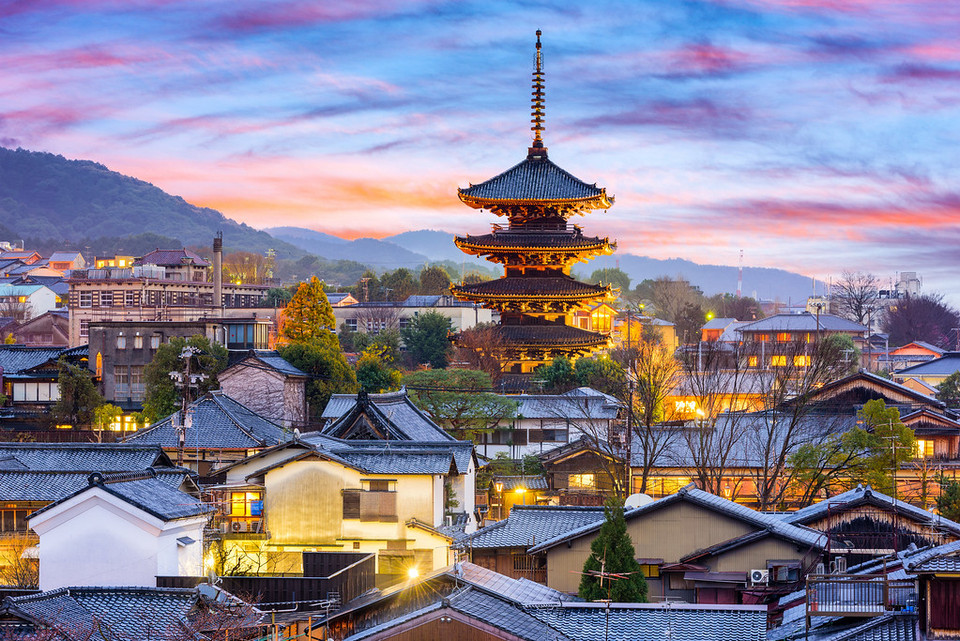
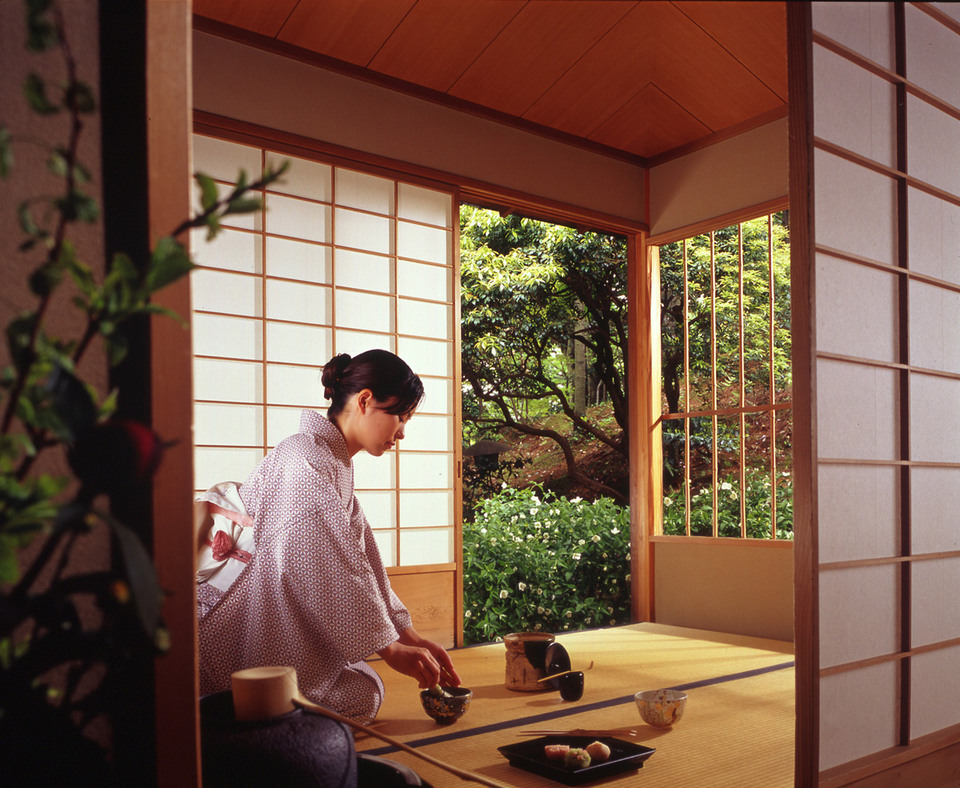
From sophisticated, intricate traditional handicrafts to matcha, confectionery, souvenirs, etc. It’s not difficult to find the answer to what to buy in Kyoto as a gift? The great historic city always offers a variety of choices for you. In the list below, we will introduce you to meaningful souvenirs that you must buy in Kyoto, Japan.
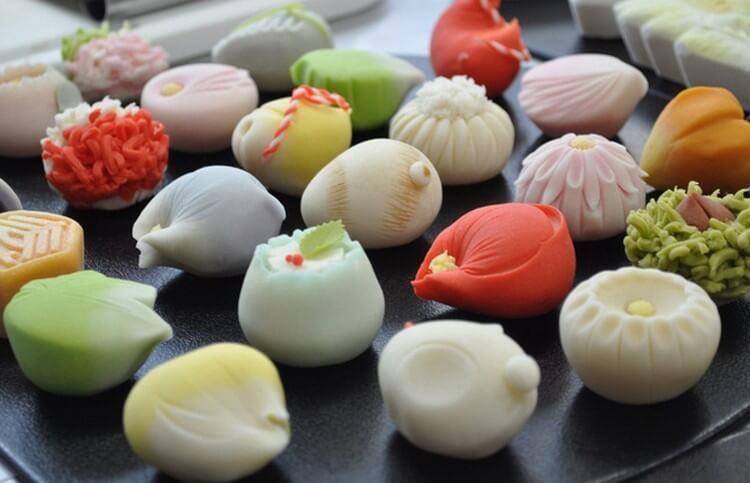
What to buy in Kyoto: Miniature Torii gate souvenirs and good luck charms at Fushimi Inari Shrine
Fushimi Inari Shrine is an important Shinto shrine south of Kyoto. It is famous for the thousands of torii gates that line the road leading to its main shrines. The significance of the shrines located at Fushimi Inari is to honor Inari, the Shinto god of rice. At the entrance gate, you’ll begin to notice small talisman-like charms, called ema, on which visitors when visiting the shrine will write hopes and wishes for the future.
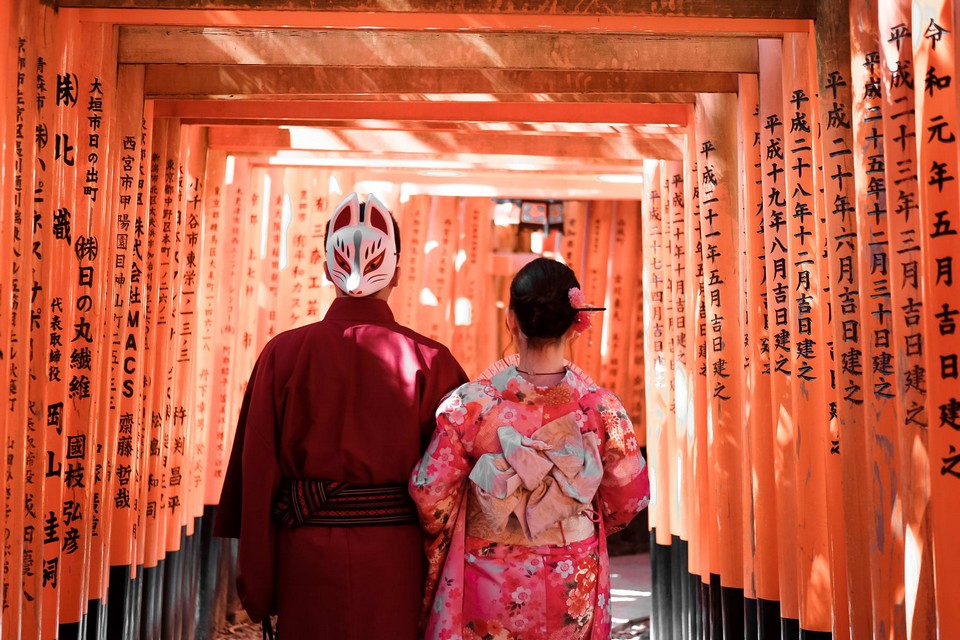
Traditionally, ema were hung in Shinto shrines to be picked up by the gods. However, at Kyoto’s Fushimi Shrine, you’ll have the chance to purchase a beautiful torii-shaped ema to take home as a souvenir. This is a traditional Japanese souvenir at a very affordable price.
Traditionally, a torii gate is most commonly seen at the entrance or in a Shinto shrine, where it symbolizes the transition from the mundane to the sacred world. Fushimi Inari Shrine is an important Shinto shrine in the south of Kyoto. Torri gates mark the way to Shinto shrines across Japan and are also a symbol of Japan.
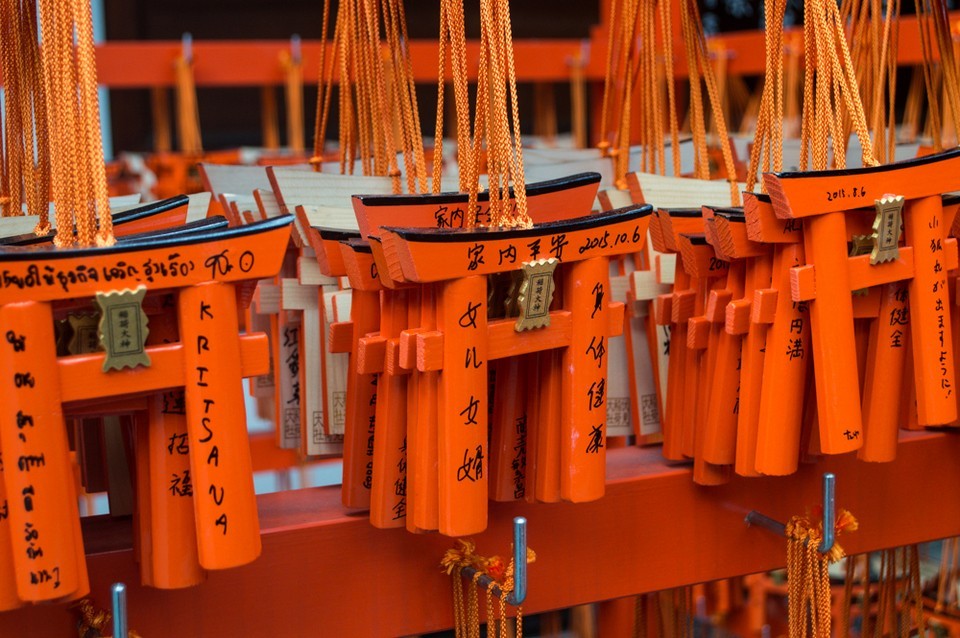
No one knows who made the legendary Torii Gate. in Japanese culture. However, most people know they are old when they first appeared around 922. The red gate opens to the mystical spiritual world that urges people to learn.
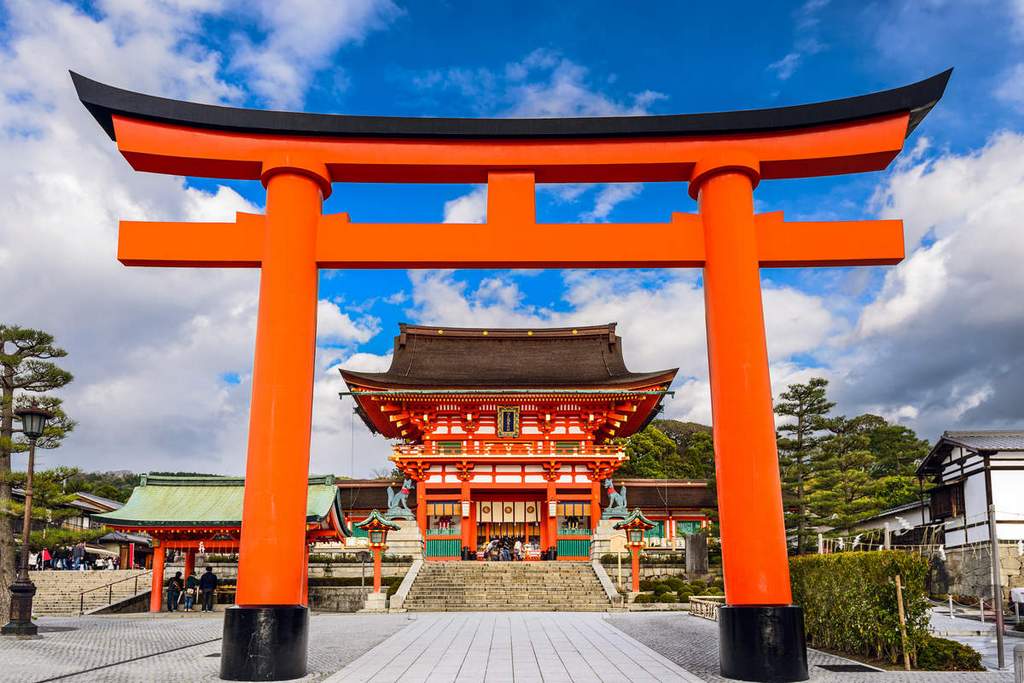
At Fushimi Inari Taisha Shrine you will see hundreds of Torii gates arranged evenly to form a unique path. Each gate is engraved with the donor’s name and thanks to the deities for helping them achieve many advantages in business. This impressive shrine is now a UNESCO World Heritage Site.
If you have the opportunity to traveling to Kyoto and visit famous Japanese tourist attractions, do not miss the gift of these miniature, cute Tori gates and good luck charms… The Japanese believe that those who own these souvenirs will have a lot of luck, ward off evil spirits and bad luck.
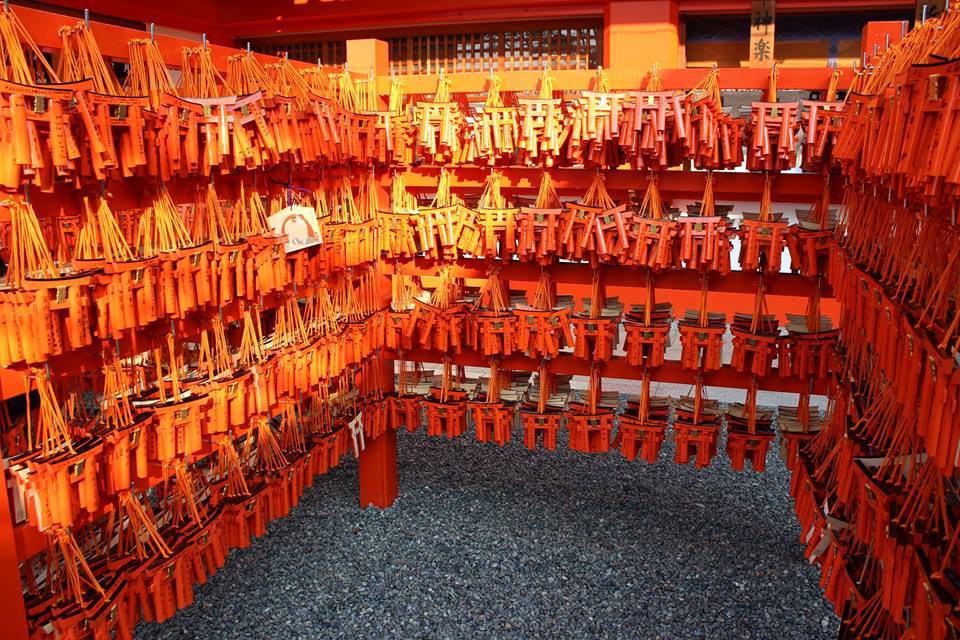
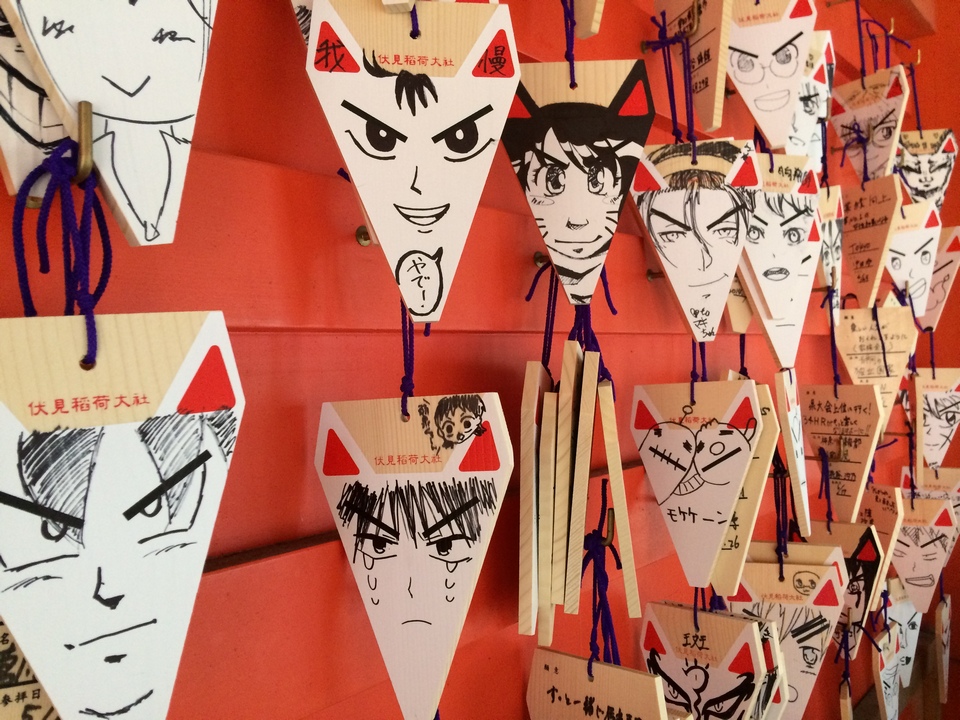
Tenugui
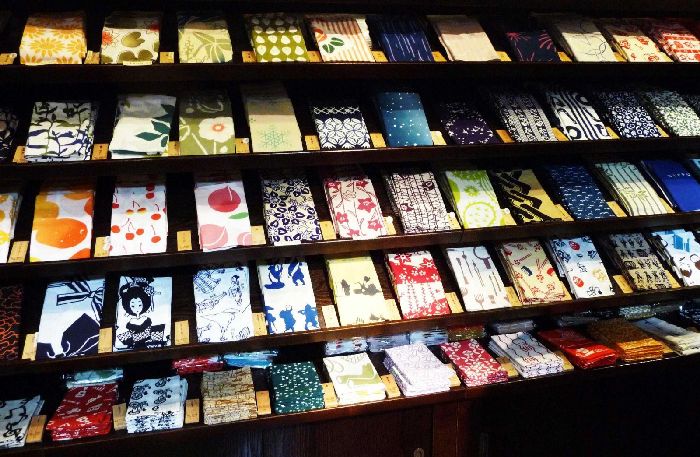
If you don’t know what to buy in Kyoto, you should choose a gift called Tenugui. This is a traditional Japanese handkerchief. Handkerchiefs made from thin, light cotton fabric in rectangular-shaped. The towels are embroidered with various motifs and patterns in traditional Japanese style.
Tenugui is a rectangular handkerchief, made from thin cotton fabric. They are woven and embroidered with various patterns or shapes to create lovely handkerchiefs that attract people at first sight.
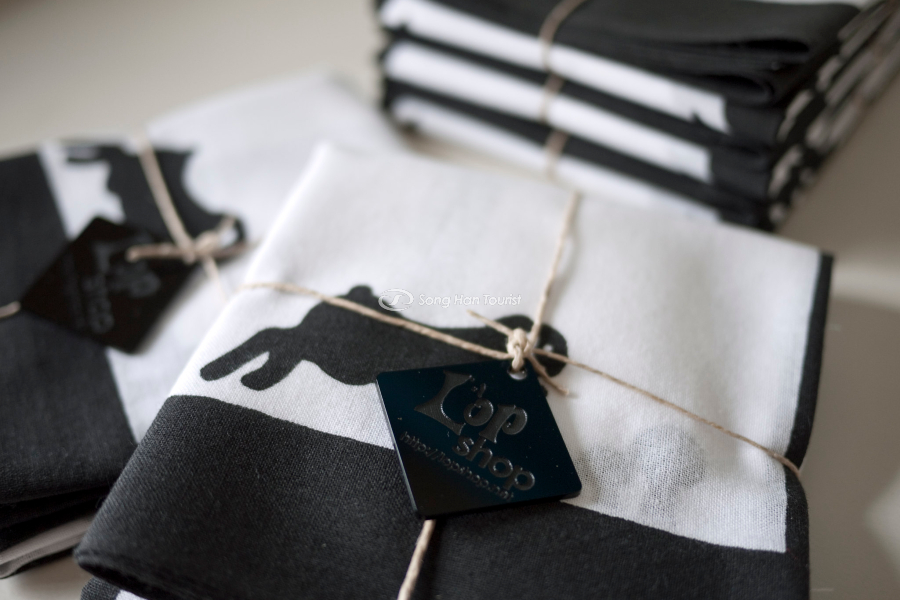
Tourists are often suggested meaningful gifts with many functions. However, not everyone knows the special origin and many interesting things from Japanese Tenugui handkerchiefs.

From the Heian period (794 — 1185), the handkerchiefs were used as a decoration for major festivals and customs and rituals of worshiping the gods. Because cloth at that time was a luxury item, ordinary people did not have the opportunity to get it. It was not until 1603 at the beginning of the Edo period that cotton agriculture began to develop, Tenugui becoming closer to all classes. On the other hand, since this period, Tenugui towels have been given more attention to the art of being.
With just a compact handkerchief, Japan has the opportunity to show off its talent to friends in five continents about Tenugui’s useful functions, such as: Wipe hands and sweat; Use as a scarf or a magic hat; Home decor as paintings made of Tenugui; Pads for the dining table; Packaging, wrapping gifts.
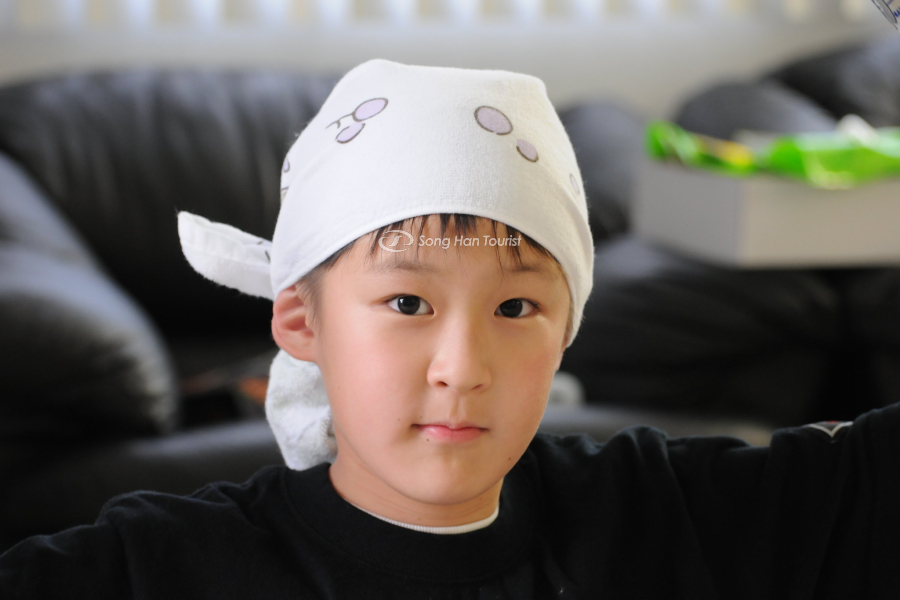
The reason why Tenugui is loved by many people and choose as what souvenirs to buy in Kyoto because of the aesthetics and uses that they bring. Each handkerchief is a small artwork, a feat that clearly shows the unique Japanese culture.
Yukata
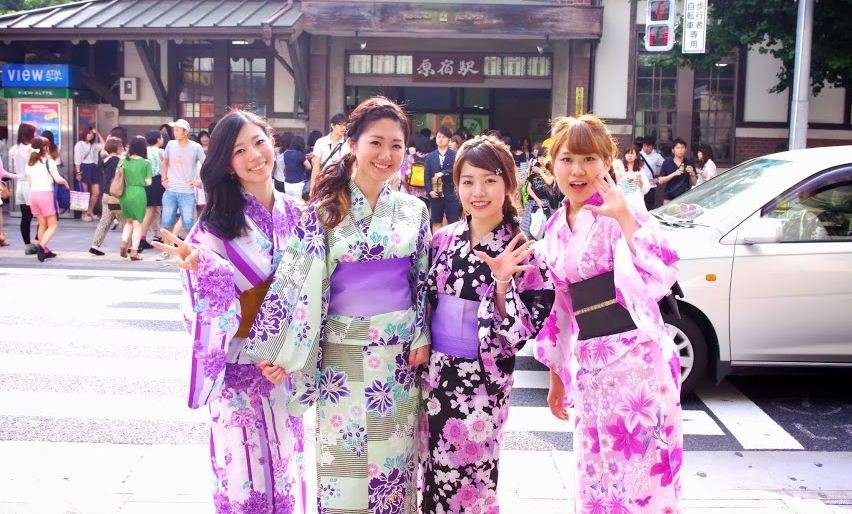
Yukata is a type of traditional Japanese women’s costume and is worn in the summer. It is a type of traditional kimono, but the style and design of the Yukata is simpler and more convenient than the traditional kimono. Yukata is very popular with Japanese girls when they participate in summer events such as fireworks festival, Bon-Odori festival. In recent years, colorful yukata with modern patterns have appeared and many women like to wear yukata with obi (embroidered waistband) and geta (wooden clogs)… It is a robe usually made of cotton or synthetic fabric, wrapped around the body and fastened with a colorful pattern waistband (obi). Yukata literally means “towel”, and it was originally intended for that purpose only.

Yukata is traditionally worn after bathing in a communal bathhouse, which acts as a quick way to cover the body and absorb remaining moisture. In many Japanese hotels, especially those with onsen baths, they will provide yukata for guests to wear during their stay. In some tourist spots, yukata are available for rent at kimono rental shops. Such shops abound in Kyoto where you can wear a yukata and explore the city for an authentic Japanese experience.
You can also buy yukata at the aforementioned shops or at department stores. Some souvenir shops at popular tourist spots sell cheap versions of yukata, making it a typical souvenir from Japan. The price of a yukata ranges from a thousand yen for simple sets to several thousand yen for more sophisticated ones.
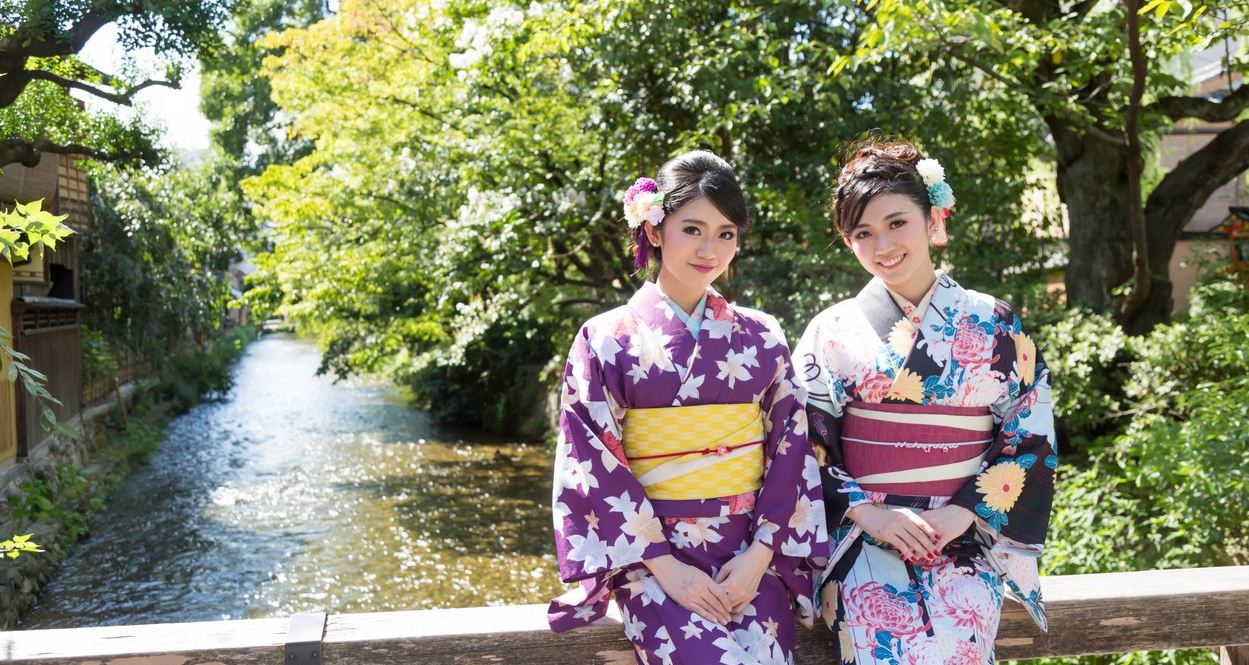
Most Japanese hotels and all ryokan provide guests with lightweight cotton robes called yukata. If you’re like most people, you’ll find them so comfortable that you’ll want to bring one home. Here are some great places to buy yukata: Daimaru Department Store (Address: Japan, 〒600-8511 Kyoto, Shimogyo Ward, Tachiuri Nishimachi, 79/Hours: 10AM–8PM); Takashimaya Department Store (Address: Japan, 〒600-8520 Kyoto, Shimogyo Ward, Shincho, 52, 79/Hours: 10AM–8PM); Isetan Department Store (Address: Japan, 〒600-8555 Kyoto, Shimogyo Ward, Higashishiokojicho/Hours: 10AM–8PM); Kyoto Handicraft Center (Address: 17 Shogoin Entomicho, Sakyo Ward, Kyoto, 606-8323, Japan/Hours: 11AM–6PM).
What to buy in Kyoto: Kimono
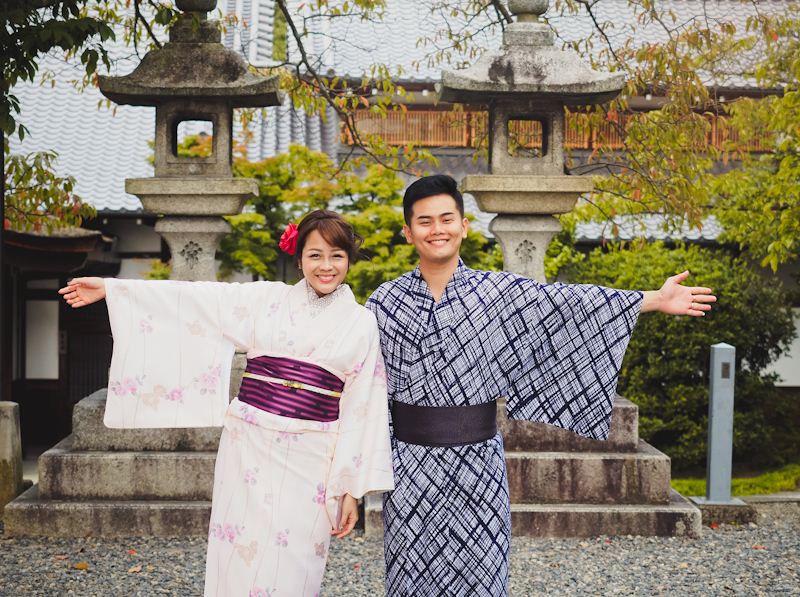
What to buy in Kyoto as gifts? Kimono is the choice that you do not need to think twice. If Vietnamese women consider Ao Dai as the national dress, so do Kimono with Japanese women. Kimono’s unique design with elegant style that boldly brings comfort to the wearer. This is also an easy gift to buy because there are many places selling this unique gift in Kyoto. However their prices will be expensive, even very very expensive depend on fabrics and patterns as well as the reputable of the shops and artisans who made them.
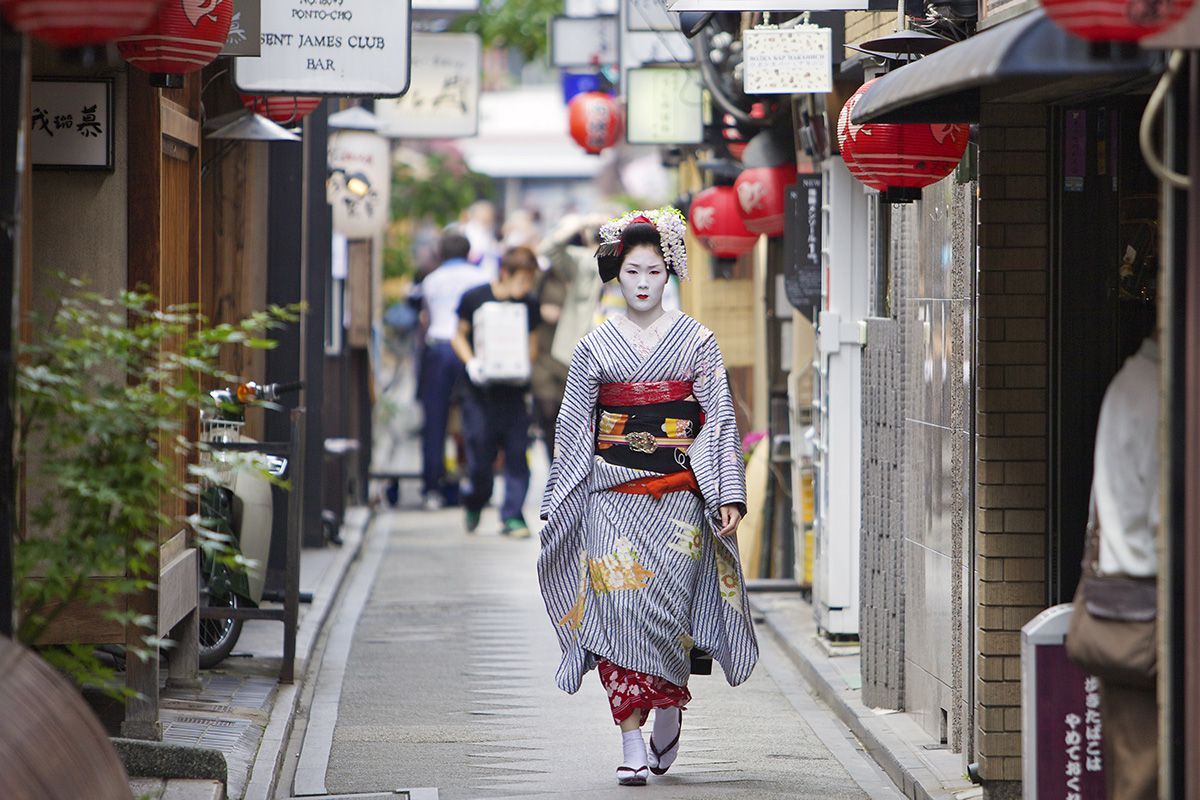
Best things to buy in Kyoto: Brocade bags
When it comes to brocade, people often think of Persia, but Kyoto is also the birthplace of the famous Asian brocade embroidery art. What to buy in Kyoto? Definitely not to be missed colorful brocade bags and other brocade products.
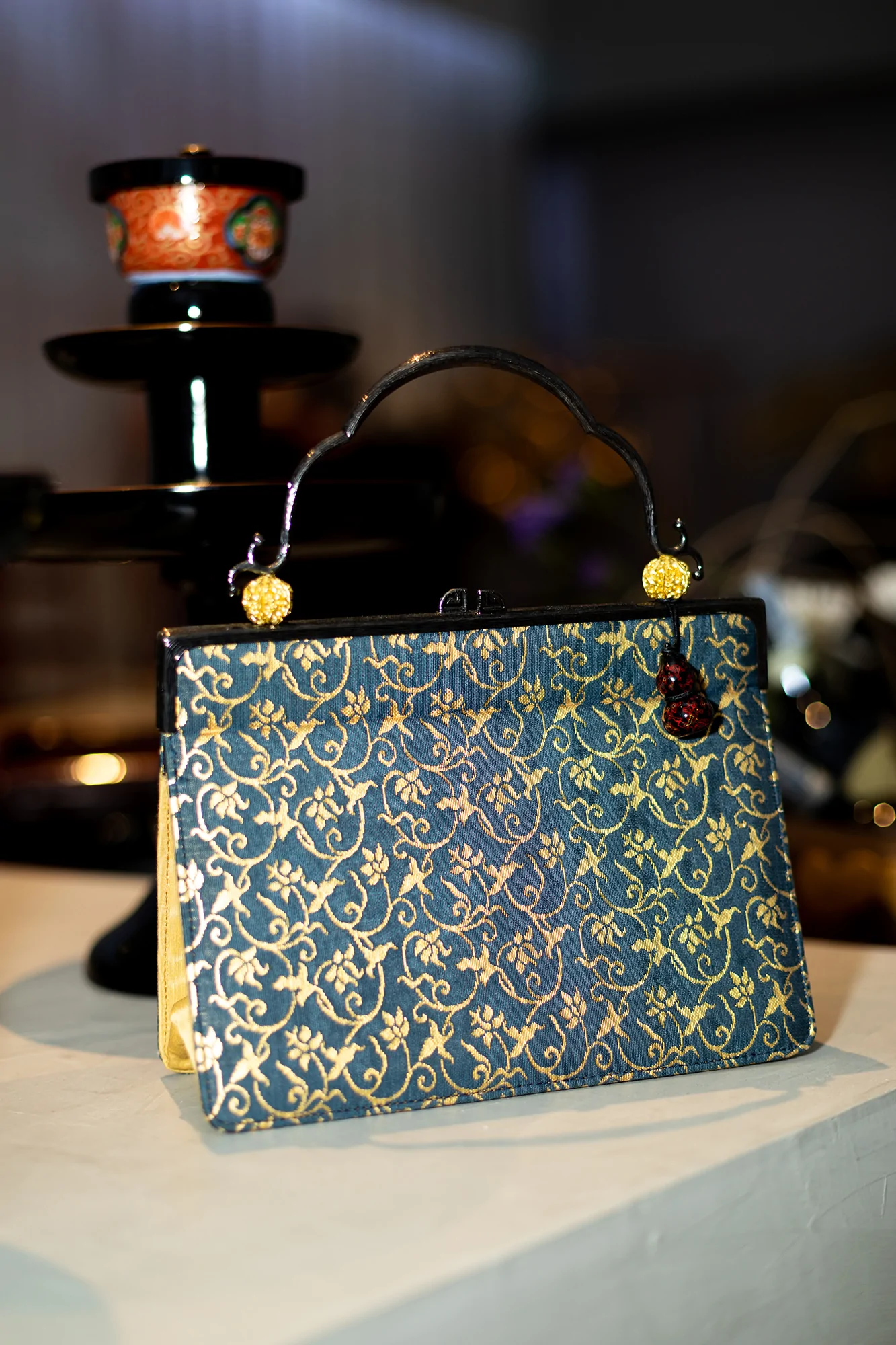
The attraction of these bags is in their style and delicate embroidered seams. The Japanese are very fond of flowers, chrysanthemums, and cherry blossoms, so each brocade bag has those symbolic images. With a bag, you can use it to hold pens, a larger bag for books, cosmetics or simply for money. This is a gift suitable for all ages such as women, children, the elderly…
Going to Kyoto, you can easily find bags in souvenir areas, fairs or large shopping centers. The price for each bag ranges from 15-18 yen depending on the size. This lovely, meaningful gift will absolutely make everyone love it.
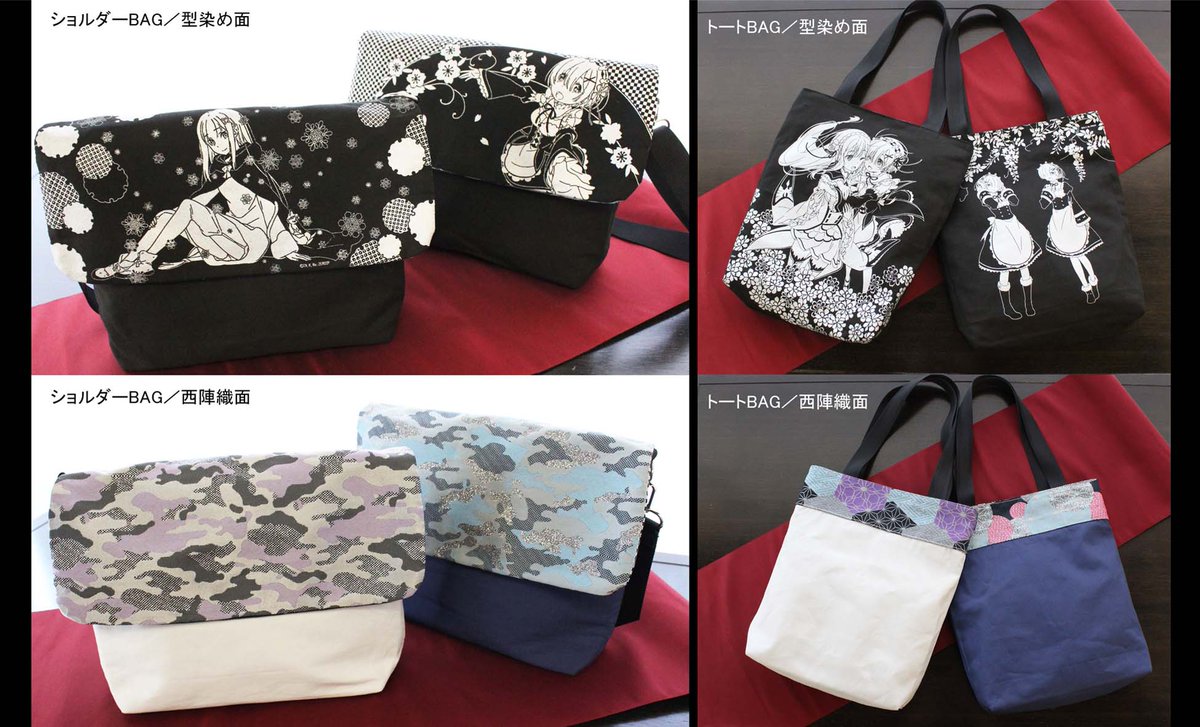
Small plate Mamesara
Mamesara are pettit plates (mame means “pea” and sara means “plate”, often used to serve traditional side dishes in Kyoto. Mamesara has a perfect size to take home and a great tableware to brighten up your meal.
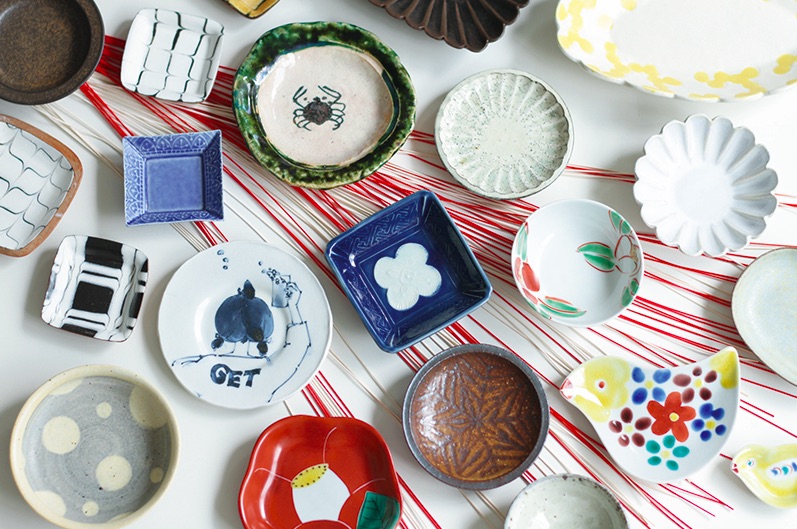
Best things to buy in Kyoto: Matcha
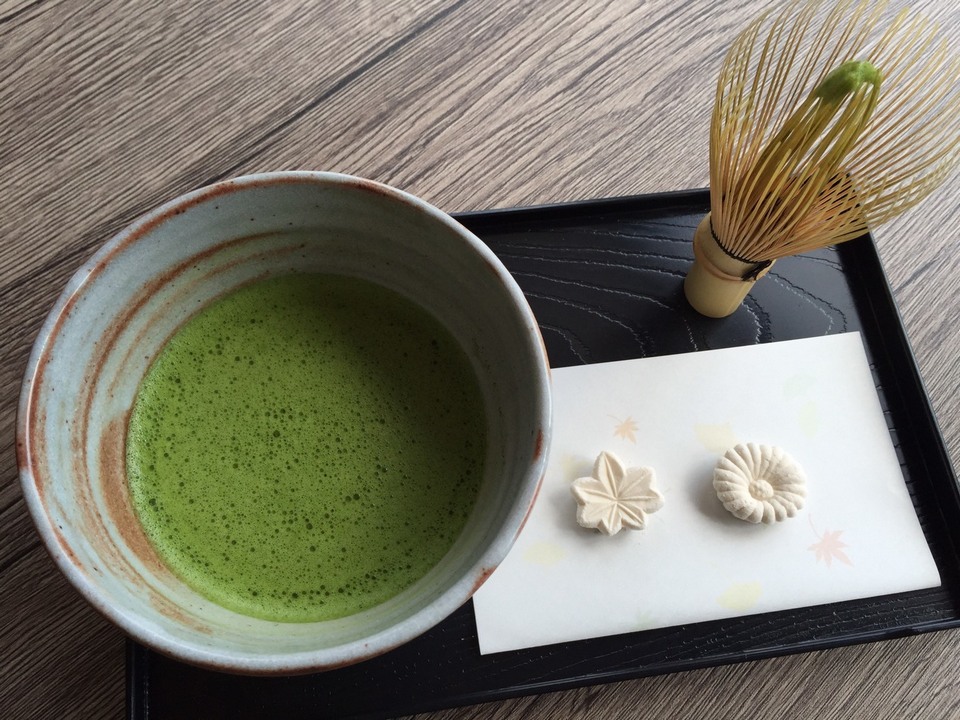
Japanese Matcha is known as a miracle drink, with a lot of good benefits for human health. It is the most consumed beverage in Japan, valued for its health and restorative properties. Drinking Matcha is a custom that has been woven into Japanese culture, no matter at home or in a restaurant, people will be served a cup of matcha after eating to ease digestion. It is a way of life and the embodiment of Japanese hospitality. And the Uji region of Kyoto is known as the home of matcha, the countryside because there are many tea fields in Uji and most of the tea produced in Kyoto originates here.
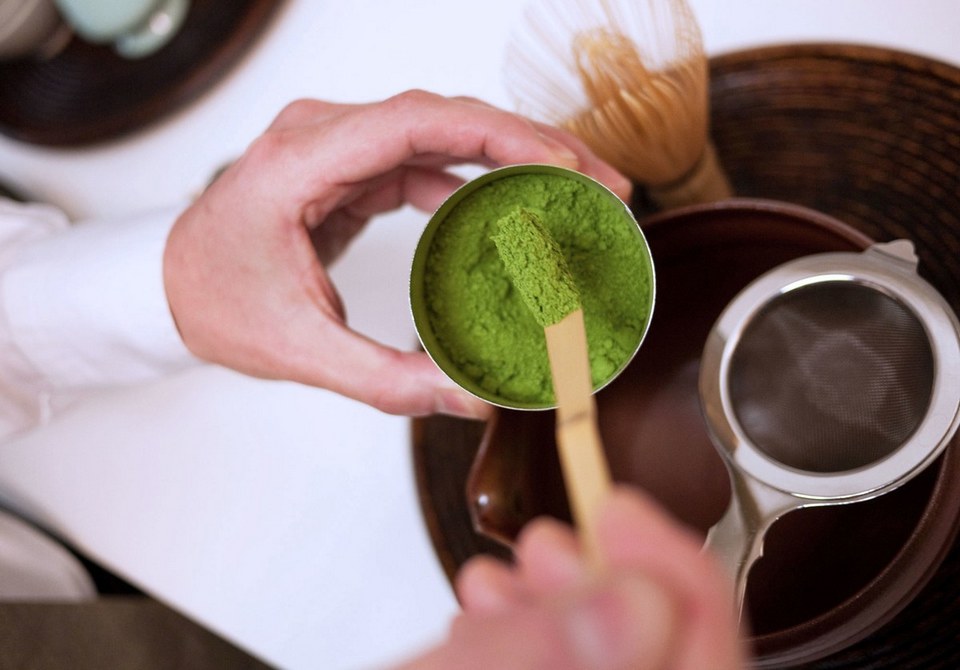
Tea in Kyoto has also become famous abroad, so now many tourists come to the shops in this place to try the tea and compare the flavors of the teas. You can find a large number of Japanese tea specialty shops in Kyoto with a wide range of products, starting from popular Japanese exclusives to Uji green tea. In green tea shops, there are Japanese sommeliers who help choose the perfect green tea that suit your taste, as the leaves on the shelves are handpicked by the owners. If you decide to sit down and have a cup of green tea at the cafe, the tea sommelier comes to your table and pours you tea.
If you like matcha while sipping it in Kyoto restaurants or just want a meaningful gift for those back home, this is the one you should buy when you leave the city. Matcha tea is the perfect gift: cheap, light and compact.
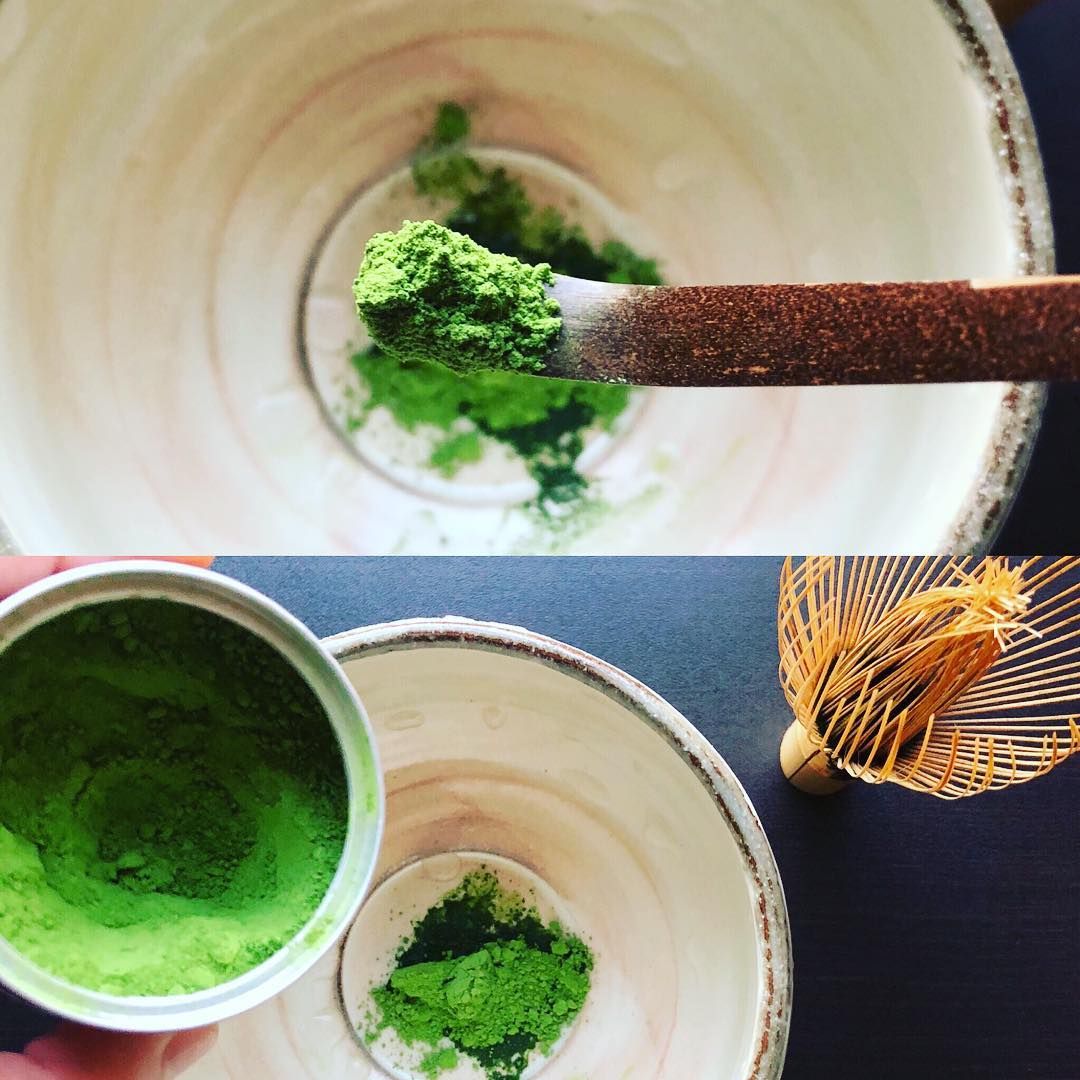
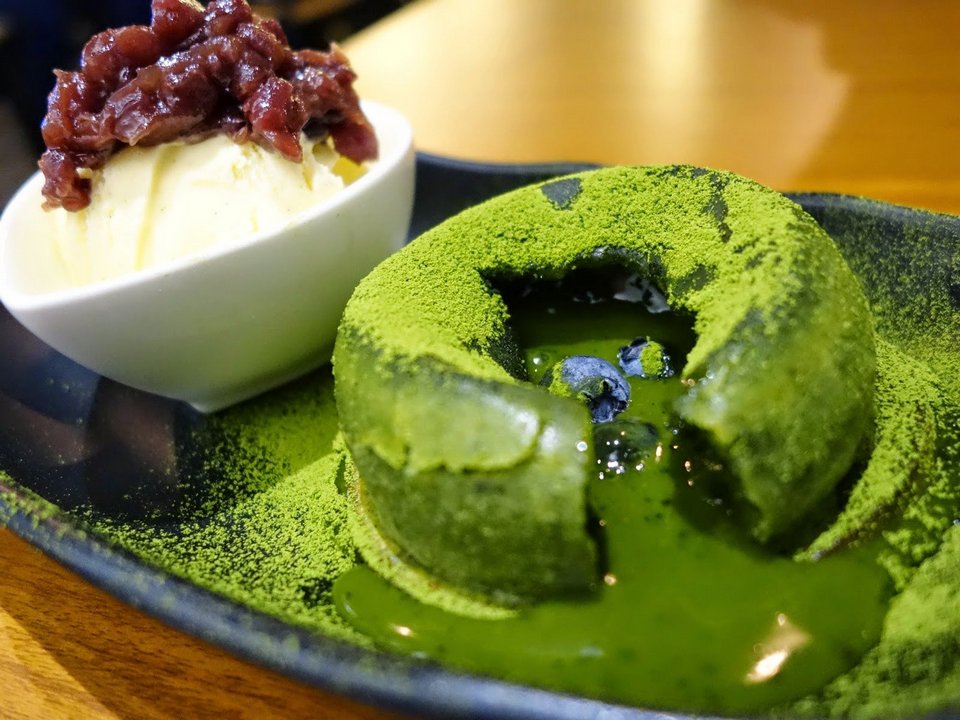
The Uji region is Kyoto’s most famous tourist destination for green tea farming. There are many restaurants and shops specializing in selling matcha products such as fresh ice cream, anmitsu, cakes, and of course all kinds of matcha powders…
Some suggested spots that you can come to enjoy unique Japanese cuisine and buy Matcha green tea products as gifts: Tsujiri Tea House, Gion Main Shop (Address: 573-3 Gionmachi Minamigawa, Higashiyama Ward, Kyoto, 605-0074, Japan/Hours: 10:30AM–7PM); Umezono CAFE & GALLERY(Address: 180 Fudocho, Nakagyo Ward, Kyoto, 604-8215, Japan/Hours: 11:30AM–5:30PM); Nakamura Tokichi (Address: Japan, 〒611-0021 Kyoto, Uji, Ichiban−10/Hours: 10AM–5PM).
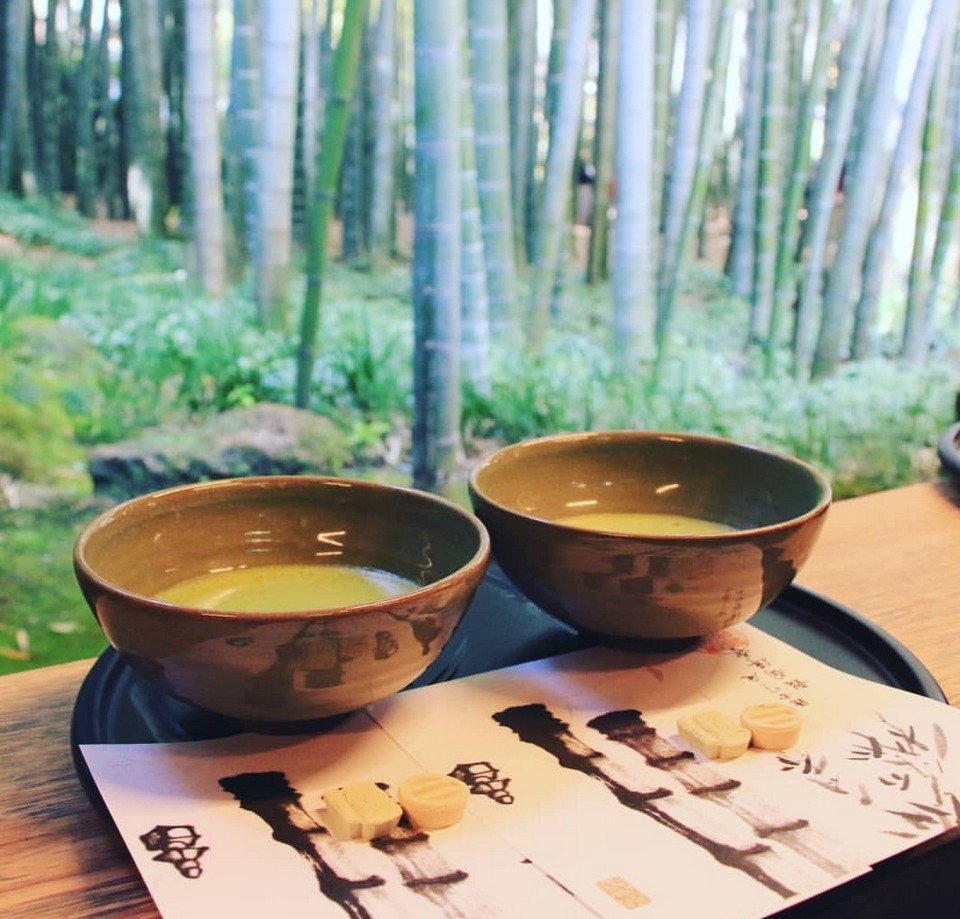
You can also go to Ippodo (Address: Japan, 〒604-0915 Kyoto, Nakagyo Ward, Tokiwagicho, 52 寺町通二条上ル/Hours: 10AM–5PM), which is the best tea house in Kyoto. The gift sets here are guaranteed to make a strong impression.
Best souvenirs from Kyoto: Wagashi
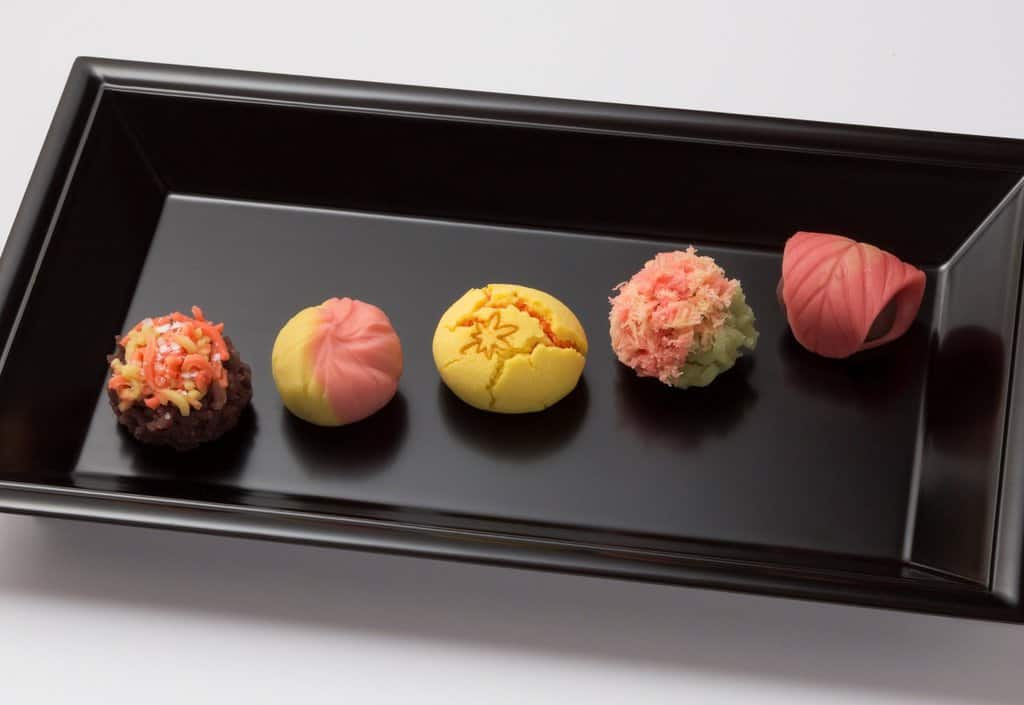
Not only Matcha green tea, Kyoto’s confectionery is also very delicious and has an eye-catching appearance, full of art. Wagashi confections are one of them. These confections are typically made from plant-based ingredients from rice flour, using organic ingredients to create elegant color and shapes. Wagashi is colorful, soft on the outside, sweet in the bite. This is an indispensable sweet in every tea ceremony.
When enjoying Wagashi, the Japanese focus on awakening all 5 senses. Wagashi is beautiful in terms of sight, fragrant from rice, sweet in taste, soft in touch. Wagashi deserves to be the most unique souvenir in Kyoto and Japan as well.
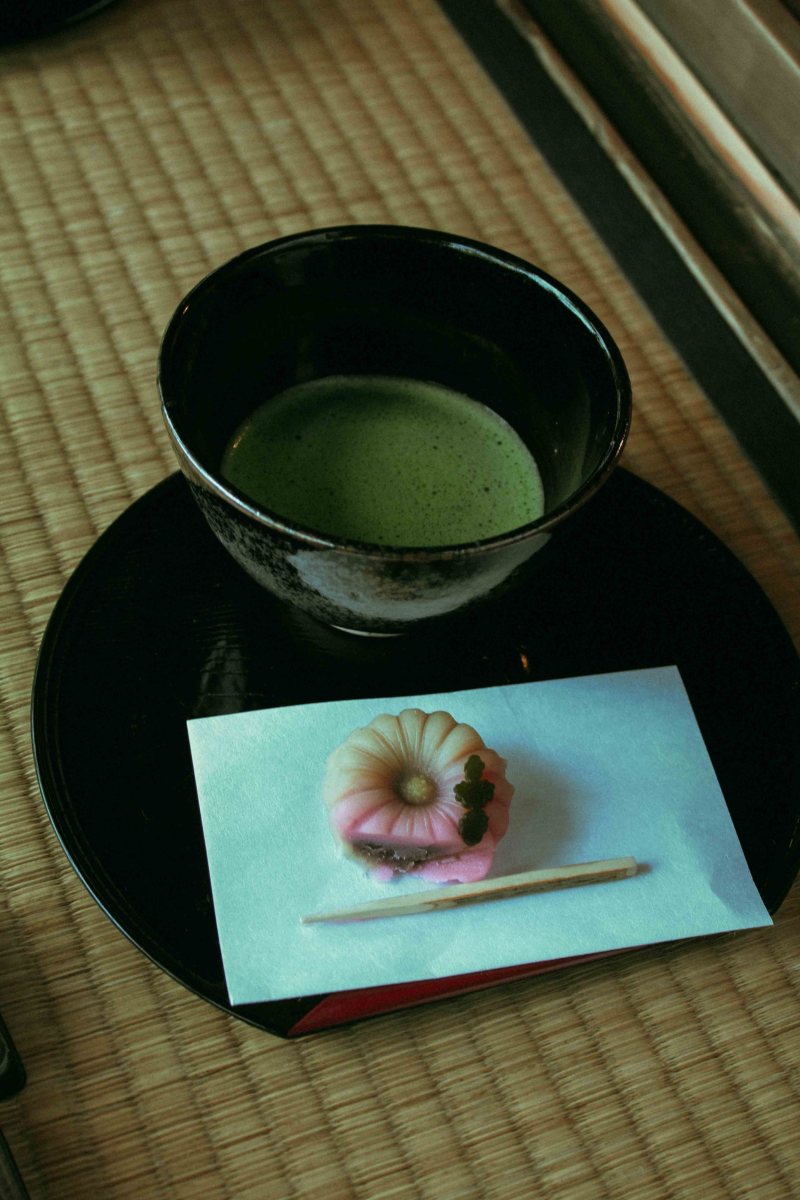
You can enjoy Kyoto specialty which is the famous wagashi of Japanese cuisine. The dish is not only beautifully presented, but also highly aesthetic, not merely delicious. Therefore, you should not ignore this Kyoto specialty as a gift to give to relatives and friends.
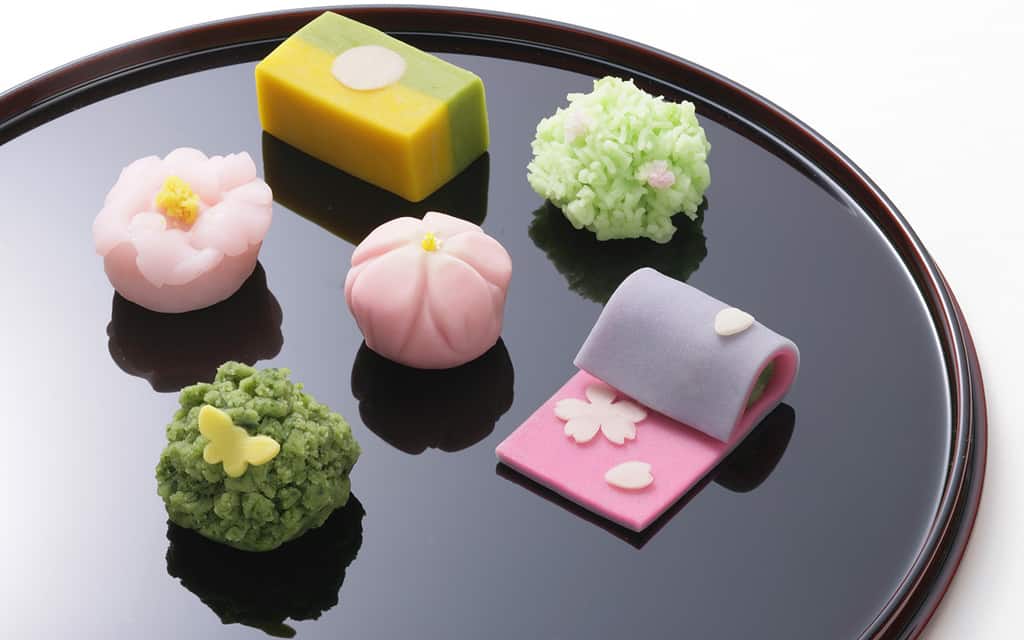
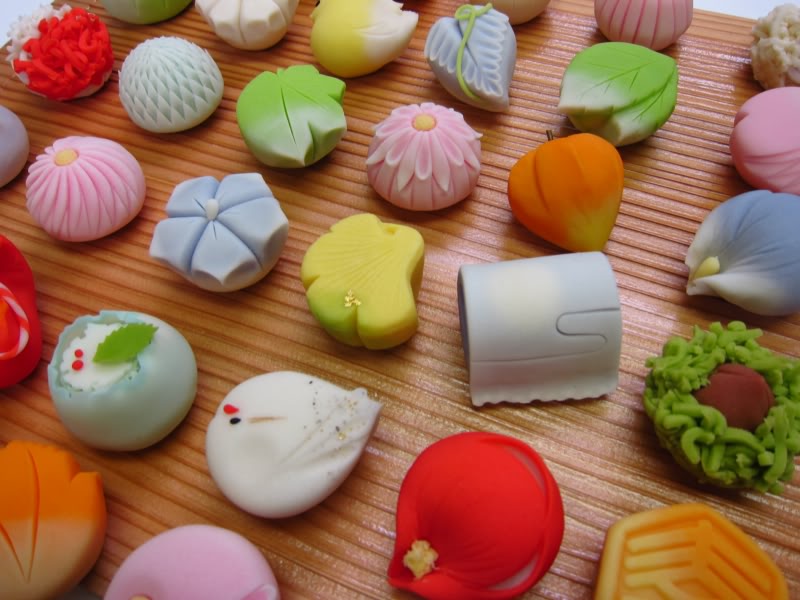
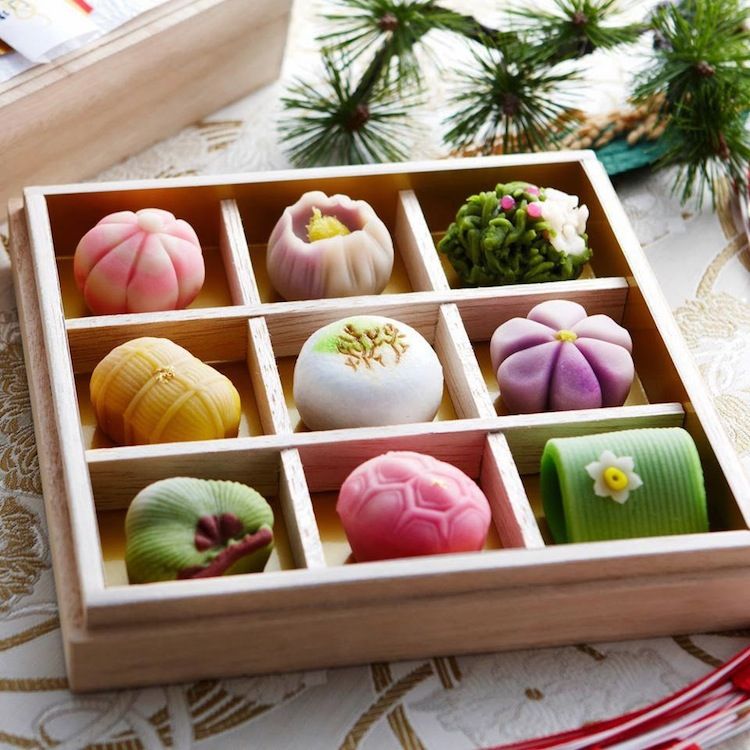
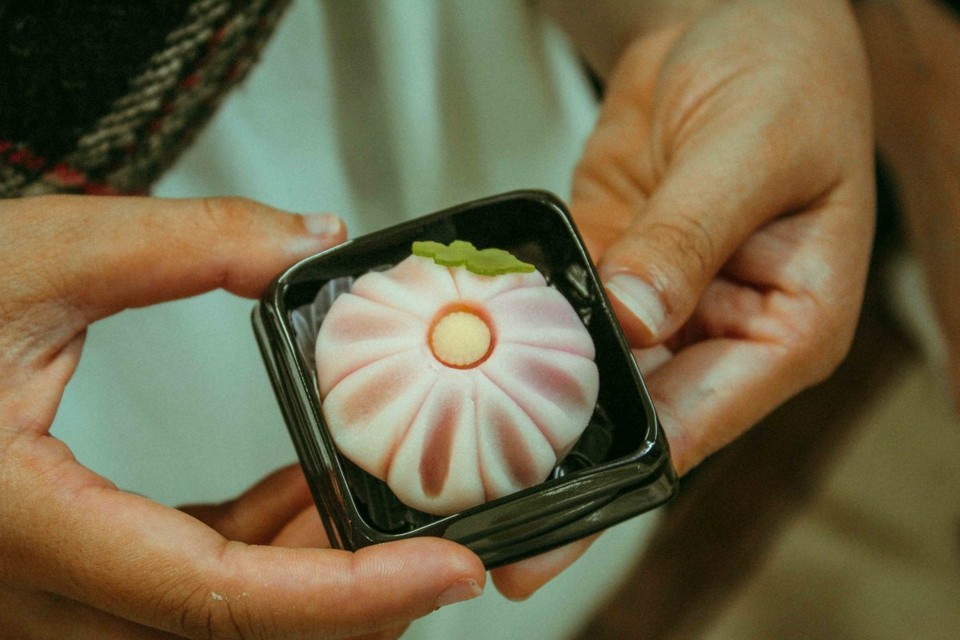
Best souvenirs from Kyoto: Washi (Traditional Japanese Paper)

Washi paper or Wagami (和紙) is a very signature Japanese paper. Washi is usually made from the bark of the gampi, or gooseberry plant, but can also be made from bamboo, hemp, rice, and wheat. Washi consists of wa meaning Japanese style and shi meaning paper, and the term is often used to describe types of paper made by hand. Washi paper is shiny, smooth, lightweight, and has excellent durability. The products made from this type of paper have amazing beauty, showing the meticulousness and sophistication in each detail of the Japanese people.
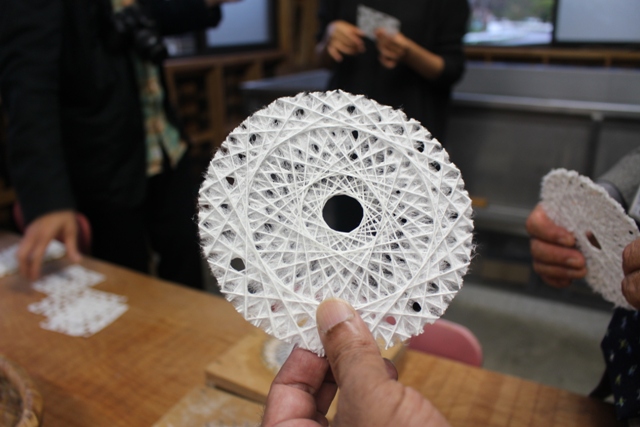
Washi paper is used in many areas of daily life of the people of the land of the rising sun such as for calligraphy, painting, origami paper cutting, kites, dolls, umbrellas, postcards, jewelry wrapping paper, frame pads, photo backgrounds, stickers and countless other uses. Experiencing many ups and downs of history, this unique traditional papermaking profession has never been lost, although the number of production facilities is not as many as before. Each sheet of Washi paper shows the quintessence and uniqueness that only the land of cherry blossoms has. In Kyoto, you can buy washi paper at Wagaminomise Morita Washi (Address: Address: 298 Ogisakayacho, Shimogyo Ward, Kyoto, 600-8095, Japan/Hours: 10AM–5PM; Saturday, Sunday: Closed), Kamiji Kakimoto (Address: 310番地, Shimohakusancho, Nakagyo Ward, Kyoto, 604-8085, Japan/Hours: 9:30AM–5PM; Monday: Closed).
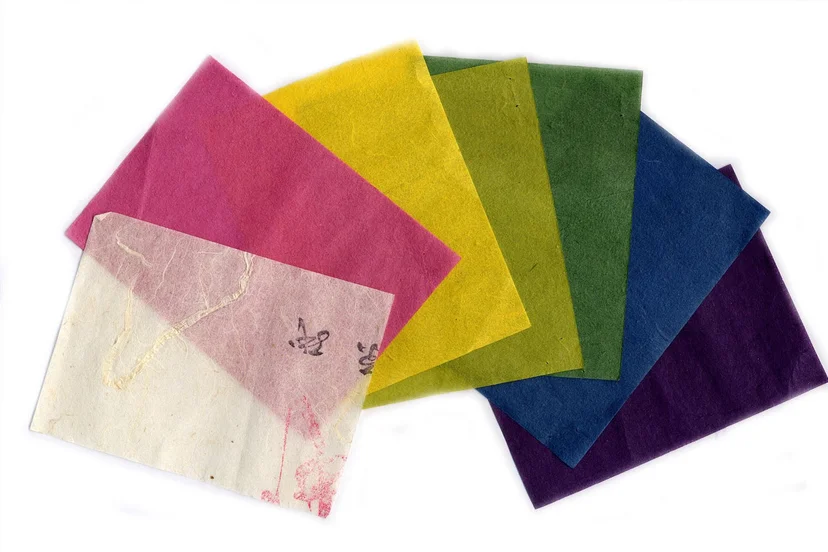
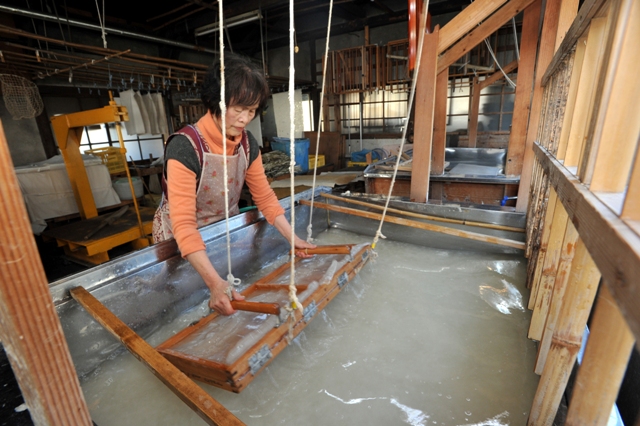
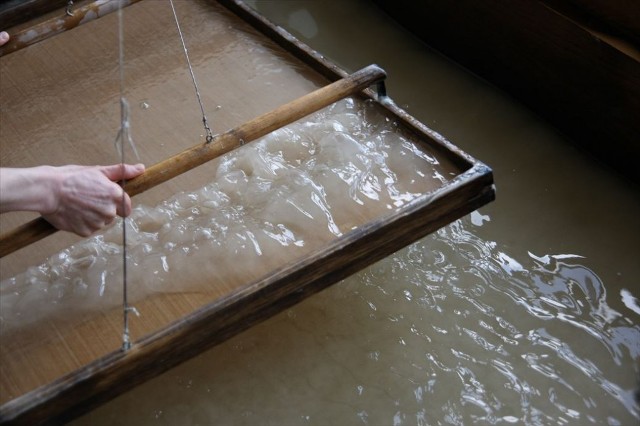
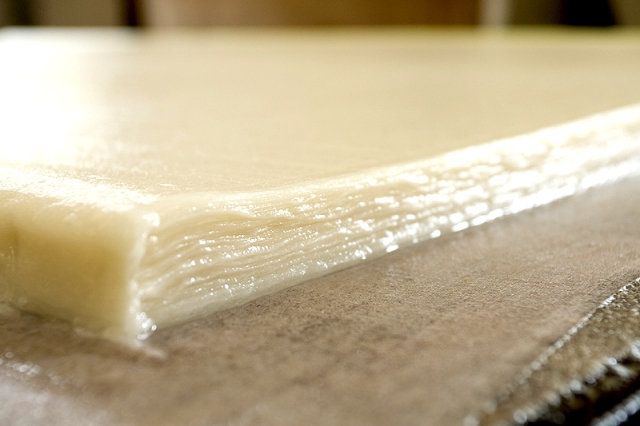
Washi will always be a favorite Japanese gift of choice. It is different from any other craft paper. Like green tea, it is inexpensive, light, and relatively compact.
What to buy from Kyoto: Uchiwa Fan
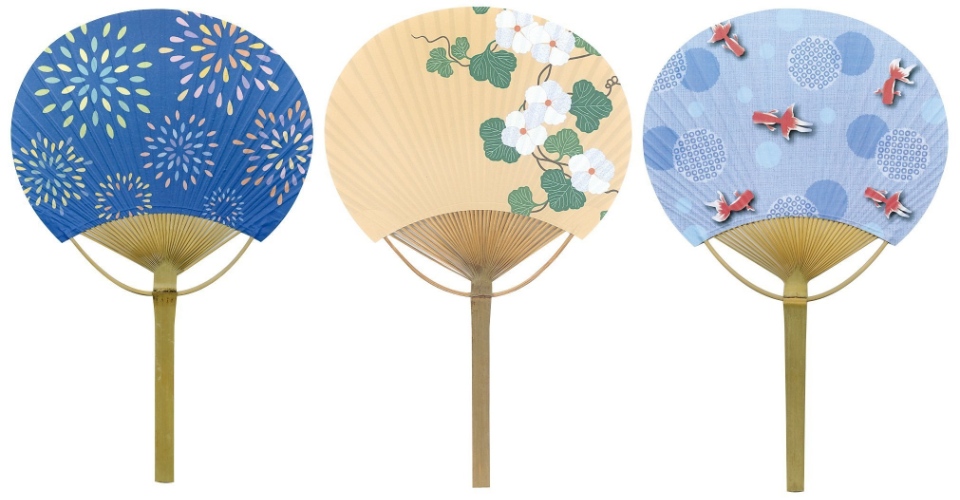
Why do many people when they don’t know what to buy in Kyoto choose the Uchiwa Fan as a souvenir? It may sound strange, but this has been the choice of millions of visitors over the years. This is a fan designed with simple motifs and completely handmade. The circle fan design has a very unique handle.
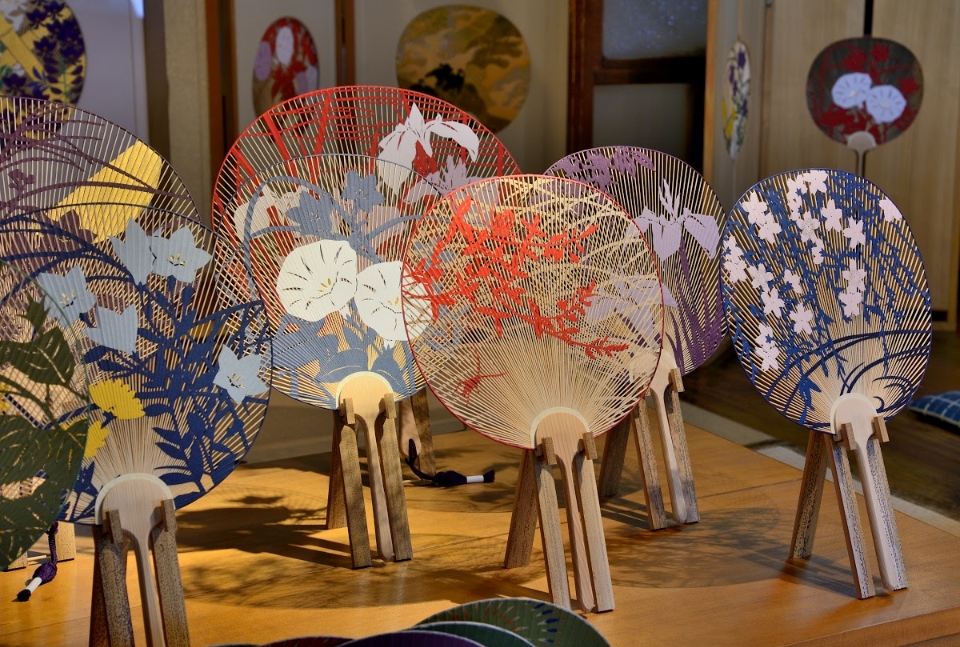
Also, the paper used is also high quality crafted washi paper. Along with that, the fan’s patterns are decorated with familiar images of Japan such as cherry blossoms, wind chimes, fall foliage… This is really an interesting and beautiful gift to bring back home after the trip to Japan.
Traditional umbrellas
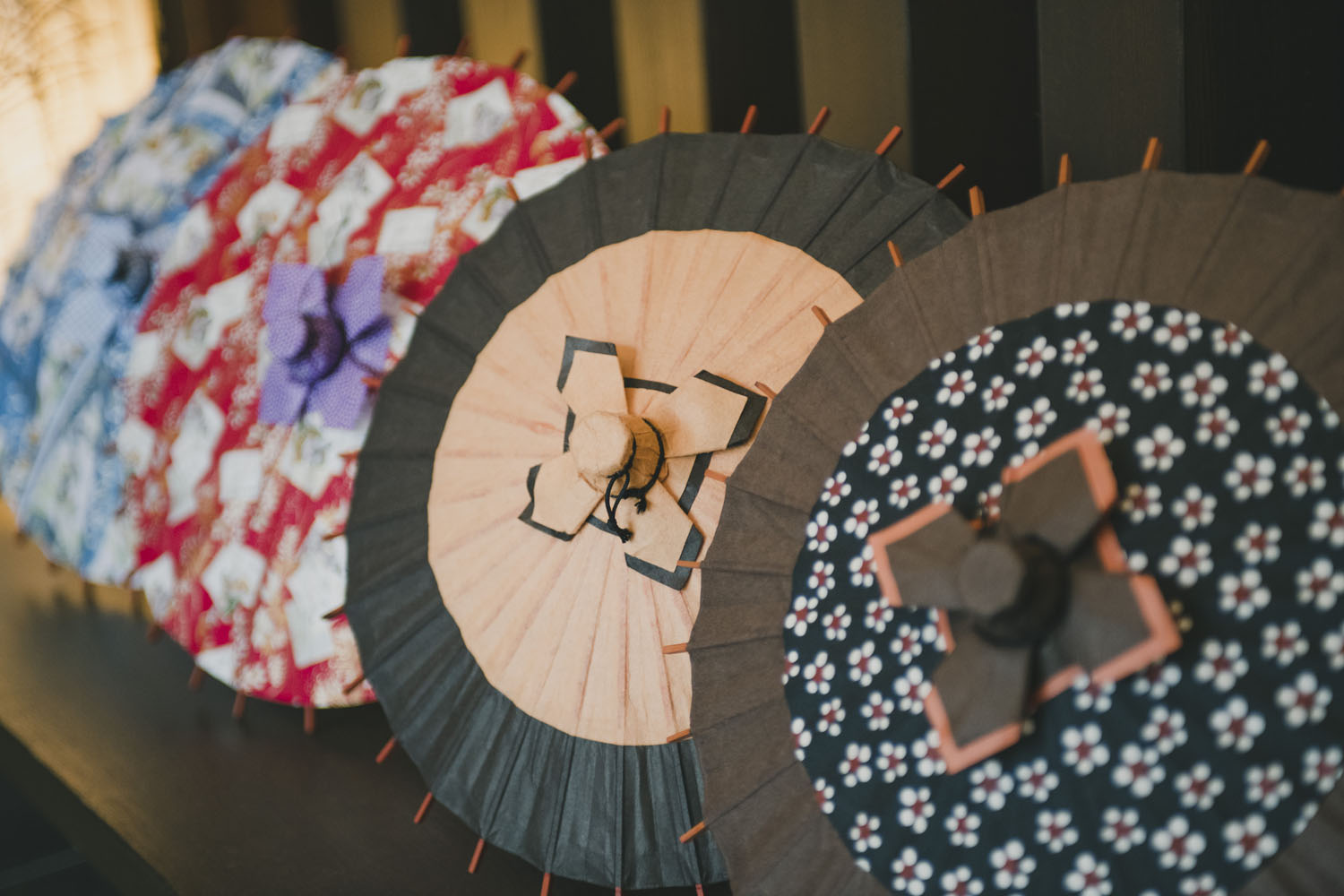
Let buy a few umbrellas at the souvenir area as gifts for loved ones. In addition to being a gift, you can use umbrellas to cover the sun and rain, to prevent erratic changes in the weather. It’s also can be used right in your trip in Japan.
The umbrella in Japanese beliefs brings many symbols. It is praying for peace, waiting, hoping for luck, to the couple being faith, towards a faithful love. In Japanese, the umbrella is called Bangasa (oiled paper umbrella). Washi paper material combined with tough, sturdy bamboo bars.
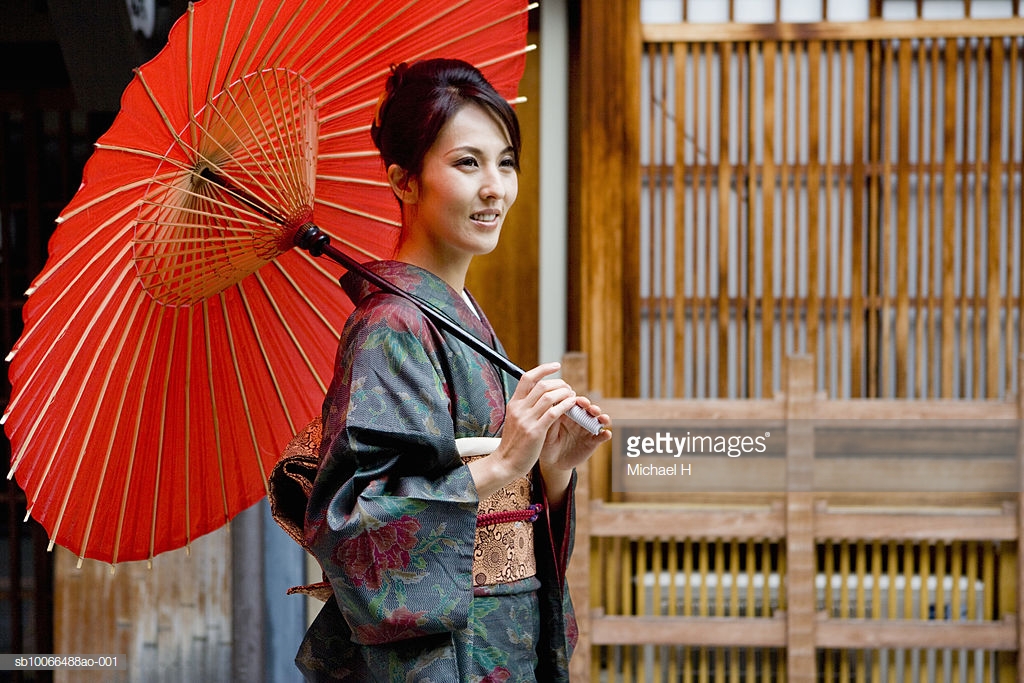
Bangasa umbrellas are oil paper umbrellas, one of the traditional Japanese umbrellas made from the finest bamboo and washi paper. That’s why the umbrella is very durable, tough, and hard to tear. The umbrella design is very eye-catching, the colors are vibrant and the price is also relatively cheap, suitable for the pocket of tourists. Therefore, the Bangasa umbrella is a suggestion for the questions of what souvenirs to buy in Kyoto and what to buy from Kyoto?!



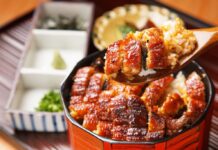


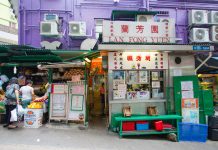
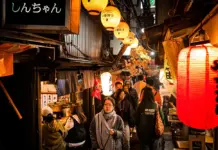
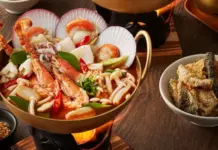



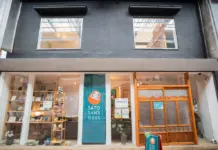






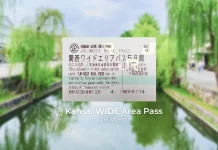


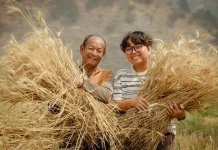
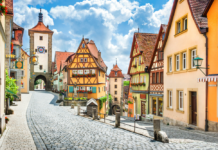



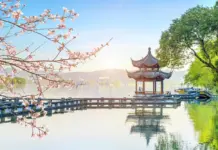

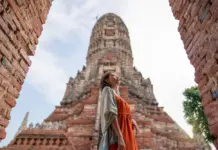
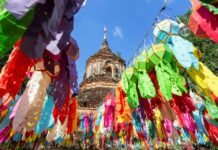

![10 best airports in Asia in 2016 [RANKED] kuala-lumpur-international-airport-best airports in asia in 2016 by skytrax ratings](https://livingnomads.com/wp-content/uploads/2016/08/29/kuala-lumpur-international-airport-best-airports-in-asia-in-2016-by-skytrax-ratings-218x150.jpg)








